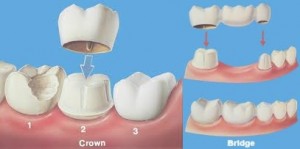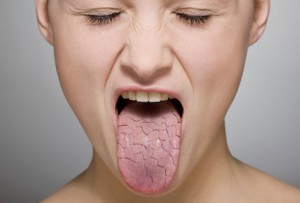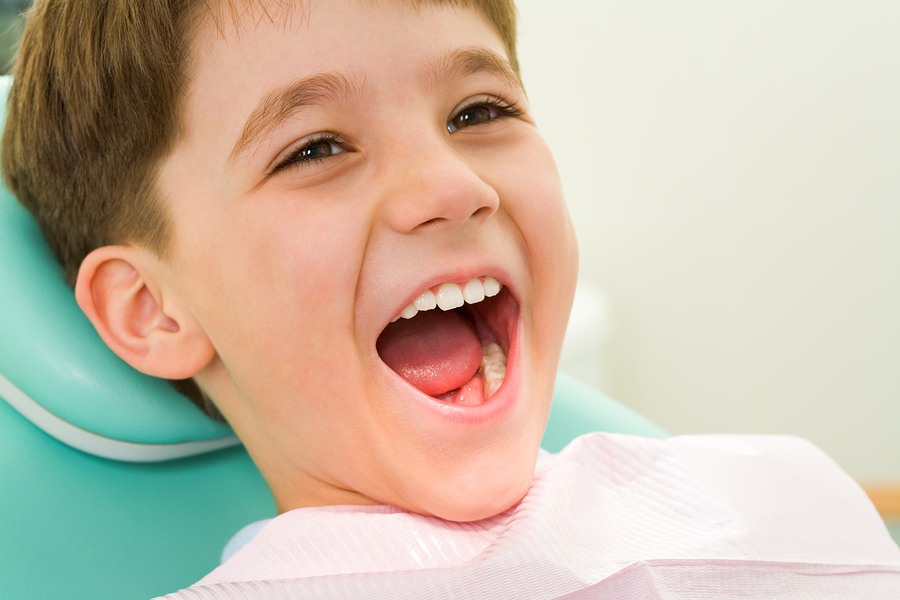Many adults admit to us that they are unhappy with their smile because of crooked teeth, however they don’t want to have braces during their adult lives. At Vivid Dental, we offer Invisalign, which is a clear, less visible alternative to traditional braces.  While not every single patient is eligible for invisalign, if you are concerned about your bite, having crooked teeth or are unhappy with your smile, come in and have an orthodontic consultation. During this consultation, we take you through your options and predicted outcomes, costs, risks and limitations. These differ for every individual case, so it’s important that you have a consultation for yourself – don’t just go off the advice of somebody else who had treatment, as your mouth may be completely different. Invisalign uses a series of clear plastic retainers to realign your teeth over a period of time. Sometimes this can be done in as little as 6 months, however this too depends on each individual case.
While not every single patient is eligible for invisalign, if you are concerned about your bite, having crooked teeth or are unhappy with your smile, come in and have an orthodontic consultation. During this consultation, we take you through your options and predicted outcomes, costs, risks and limitations. These differ for every individual case, so it’s important that you have a consultation for yourself – don’t just go off the advice of somebody else who had treatment, as your mouth may be completely different. Invisalign uses a series of clear plastic retainers to realign your teeth over a period of time. Sometimes this can be done in as little as 6 months, however this too depends on each individual case.
Is Fluoride Safe For Kids?
There is a lot of controversy and differing opinions surrounding the issue of fluoridation and whether or not fluoride is safe for consumption, especially for children. At Vivid Dental we highly recommend topical fluoride treatment every 3-6 months when you have your regular check-up and clean, no matter what your age is.
We also recommend that all our patients use a fluoride toothpaste at home. In some cases where decay is severe and rapid, an extra high strength fluoride toothpaste may be recommended to strengthen tooth enamel. Fluoride can be harmful if it is ingested in large quantities. Swallowing tiny amounts of fluoride in your saliva will not cause harm to you or your children, however we always teach children to spit out their toothpaste. In Australia, our tap water has fluoride in it, and this is good for teeth. If you are concerned about your child’s exposure to fluoride, please book in an appointment and have a chat to our friendly team.
Crowns, Bridges and Implants
 Crowns and Bridges are terms used to describe the prosthetic replica of a tooth (or teeth) modelled on an individual’s own mouth and then cemented in place. If you have a tooth that has been filled several times or is heavily decayed or broken, a crown could be the best option for you. If you have lost a tooth and would like to bridge the gap between the teeth on either side of your missing tooth, a bridge can do exactly that. The preparation for a crown or bridge is very similar. The tooth to be crowned (or the teeth either side of the missing tooth) is shaped to be smaller and shorter than before. This is to make room for the prosthetic tooth to fit on top. Several moulds are taken throughout this process, so that the crown or bridge will be an exact replica of your natural tooth and will fit perfectly.
Crowns and Bridges are terms used to describe the prosthetic replica of a tooth (or teeth) modelled on an individual’s own mouth and then cemented in place. If you have a tooth that has been filled several times or is heavily decayed or broken, a crown could be the best option for you. If you have lost a tooth and would like to bridge the gap between the teeth on either side of your missing tooth, a bridge can do exactly that. The preparation for a crown or bridge is very similar. The tooth to be crowned (or the teeth either side of the missing tooth) is shaped to be smaller and shorter than before. This is to make room for the prosthetic tooth to fit on top. Several moulds are taken throughout this process, so that the crown or bridge will be an exact replica of your natural tooth and will fit perfectly.
Pulp Therapy for Children
Week 3 Kids – Pulp Therapy for Children
A pulpotamy or “pulp therapy” is a dental procedure used to treat severe decay that has affected the tooth right down to the pulp. This picture illustrates a tooth – the enamel, the dentine and the pulp inside. Decay that is not too deep can be cleaned out and filled with a composite resin filling. However as children’s teeth are weaker than adult teeth, decay can rapidly progress deep down into the pulp chamber of the tooth. When this happens, a pulpotamy is needed.
Dry Mouth: Causes and Treatment
 Dry mouth is an irritating and uncomfortable condition many patients suffer with. It can be caused by many factors, such as medication, diet, smoking or dehydration. Many medications list dry mouth as a possible side effect, and if the medication is for short term use only, there may not be a problem. However having dry mouth for a long period of time can increase your risk of tooth decay and cavities, and lead to bad breath. Deficiencies in your diet can also add to dry mouth issues. Consult your doctor and our friendly team at Vivid Dental to find the cause of your dry mouth. For temporary relief, drink as much water as you can and dry consuming more fruits and vegetables. A range of dry mouth mouthwashes are available at pharmacies and supermarkets, which stimulate saliva production. Steer clear from alcohol and any dental products containing alcohol too. Sufferers of dry mouth may need to have their check-up and clean appointments more regularly than others – every 3-6 months.
Dry mouth is an irritating and uncomfortable condition many patients suffer with. It can be caused by many factors, such as medication, diet, smoking or dehydration. Many medications list dry mouth as a possible side effect, and if the medication is for short term use only, there may not be a problem. However having dry mouth for a long period of time can increase your risk of tooth decay and cavities, and lead to bad breath. Deficiencies in your diet can also add to dry mouth issues. Consult your doctor and our friendly team at Vivid Dental to find the cause of your dry mouth. For temporary relief, drink as much water as you can and dry consuming more fruits and vegetables. A range of dry mouth mouthwashes are available at pharmacies and supermarkets, which stimulate saliva production. Steer clear from alcohol and any dental products containing alcohol too. Sufferers of dry mouth may need to have their check-up and clean appointments more regularly than others – every 3-6 months.
Don’t Let Your Fears Become Your Child’s Fears!
Do you have fears and anxieties from previous bad experiences at the dentist? You’re not the only one. Many of our adult patients suffered from traumatic or stressful experiences at the dentist or orthodontist when they were young. We are able to help you overcome these anxieties with our happy gas, our  painless injections and our friendly step by step approach. However, many parents subconsciously pass their fears onto their children. Saying things like “we need to be brave at the dentist” or “you need to be a big boy at the dentist” can actually worsen your child’s experience. Kids pick up on your emotions and expressions – especially if you seem anxious or fearful. They will then assume that the dentist is a scary place where they need to be brave and prepare for painful treatments, however at Vivid, this isn’t the case.
painless injections and our friendly step by step approach. However, many parents subconsciously pass their fears onto their children. Saying things like “we need to be brave at the dentist” or “you need to be a big boy at the dentist” can actually worsen your child’s experience. Kids pick up on your emotions and expressions – especially if you seem anxious or fearful. They will then assume that the dentist is a scary place where they need to be brave and prepare for painful treatments, however at Vivid, this isn’t the case.
Top 5 Kids Dental Myths Uncovered!
Many parents have misconceptions about the importance of dental health in children. We have gathered the 5 most common children’s dental myths below, to set the record straight!
1. Cavities in kids teeth don’t matter because baby teeth fall out anyway.
This is false, but a very common misconception. Cavities in baby teeth can actually cause permanent damage to your child’s adult teeth – even when they are under the gum. Having active decay in the mouth is never safe, so if you think your child might have decay in their teeth, bring them in.
What Age Should I Start Taking My Kids To The Dentist?
Recently the team at Vivid Dental attended the Pregnancy Babies & Children’s Expowww.pbcexpo.com.au at Sydney Olympic Park. We had the opportunity to meet lots of new and expecting mum’s. Over the three days, the question most mums asked was “at what age should I take my children to the dentist?” Our answer?
Kids should see the dentist for their first dental check-up at the age of 3
There seems to be a lot of conflicting information given between dentists, midwives and baby books. The age seems to range from as young as 1 year. So, can your kids see the dentist earlier? The answer is yes, especially if you have a specific concern. Most importantly, if your child has been in a school yard accident and has hurt their mouth or teeth then they should see the dentist as soon as possible regardless of age.
Can Playing Sport Be Bad For My Teeth?
A patient recently came to see me as his teeth had become increasingly sensitive to cold. He mentioned that he had recently started long distance bike riding and alarm bells immediately rang in my mind. Discussing this further I discovered that as part of the sport, for energy riders drank gels which contained a high amount of sugar and acid for energy and electrolyte replacement. This sensitivity is an early warning sign and since we identified this problem early, he had not progressed to cavities. At this stage we can help reverse the damage and reduce the risk that these sensitive spots develop into cavities.


